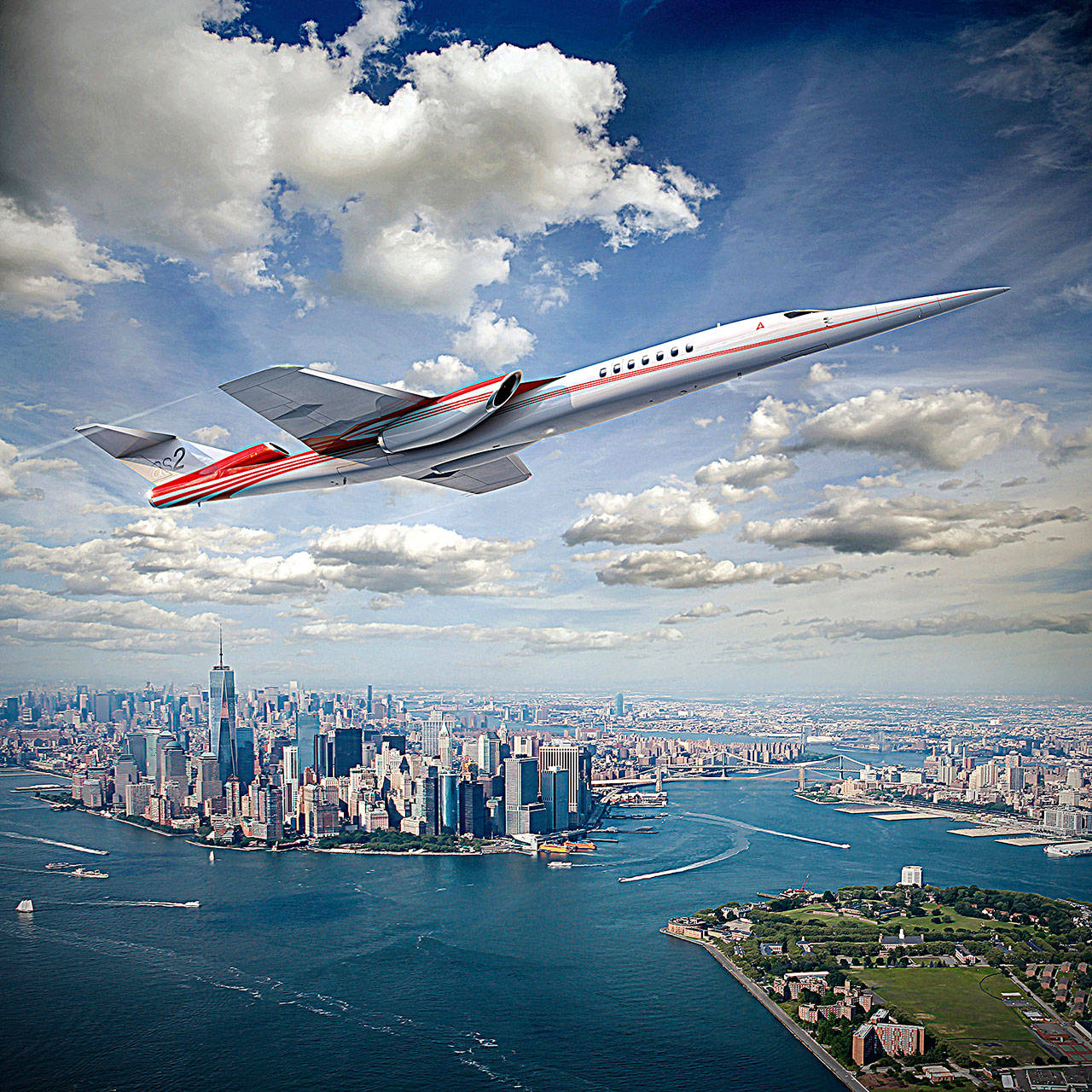By Dominic Gates
The Seattle Times
Boeing announced Tuesday it’s making a significant investment in a startup company developing an advanced supersonic business jet.
The deal with Reno, Nev.-based Aerion should accelerate technology development and design of Aerion’s planned AS2 supersonic business jet, a sleek, needle-pointed design concept that resembles a small version of the Anglo-French supersonic Concorde.
Boeing said it will provide engineering, manufacturing and flight-test resources, as well as some parts of the aircraft, to help bring the AS2 to market.
The 12-passenger AS2 will be built mostly from carbon fiber composite and is designed to fly over ocean routes at speeds up to Mach 1.4, or approximately 1,000 miles per hour. Over land, the AS2 is intended to cruise at Mach 0.95, to avoid sonic booms that would breach noise regulations.
Flying up to 70 percent faster than today’s business jets, the AS2 could save approximately three hours on a transatlantic flight. The aircraft is slated for first flight in 2023.
Aerion believes that later versions of the aircraft will include technology to allow it to cruise supersonically at speeds approaching Mach 1.2 without a sonic boom.
Steve Nordlund, vice president and general manager of Boeing NeXt, the company’s research and development unit focused on autonomous flight and advanced propulsion, said that in partnering with Aerion, “Boeing is leading a mobility transformation that will safely and efficiently connect the world faster than ever before.”
“This is a strategic and disciplined leading-edge investment in further maturing supersonic technology,” Nordlund said, adding that the combination of “Aerion’s supersonic expertise with Boeing’s global industrial scale and commercial aviation experience … (will) build the future of sustainable supersonic flight.”
Terms of the deal were not disclosed.
Aerion unveiled the AS2 business jet design in 2014 and last year announced the selection of GE’s Affinity engine to power the aircraft and of Honeywell to design the cockpit.
The Boeing deal is the latest in Aerion’s changing carousel of big aerospace partnerships.
In making its investment, Boeing has supplanted Lockheed Martin, which in December 2017 announced a memorandum of understanding with Aerion “to explore the feasibility of joint development” of the AS2. Aerion spokesman Jeff Miller said the new agreement with Boeing supersedes that MOU.
Before Lockheed, Aerion had an engineering support contract with Airbus, but that ended in 2017.



